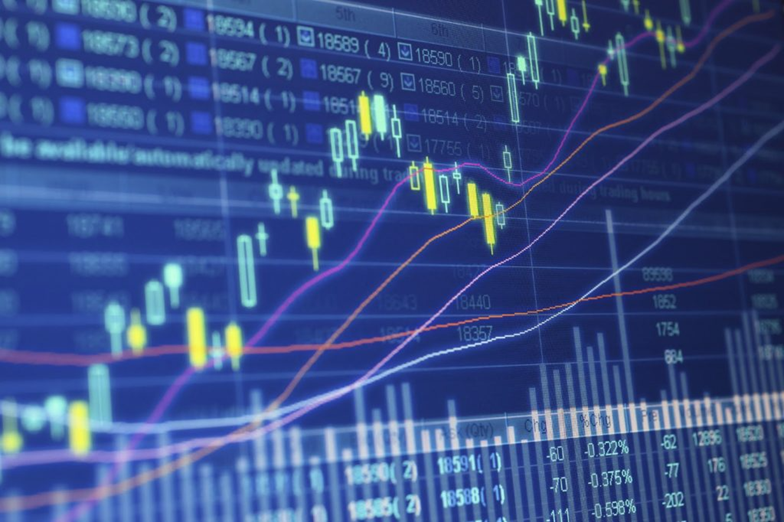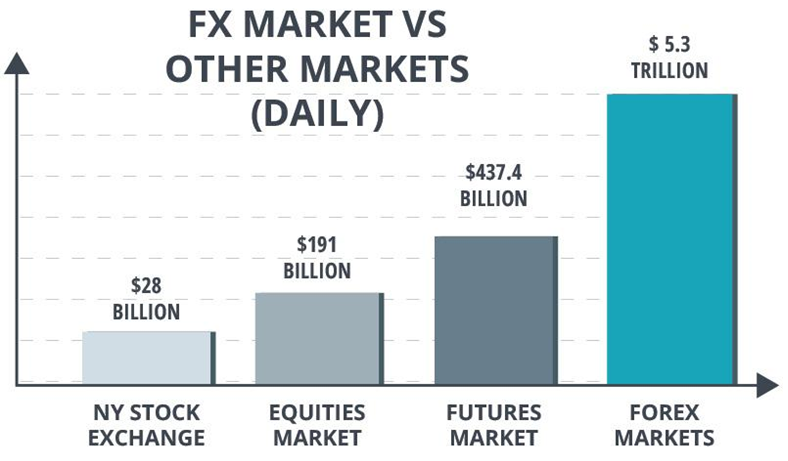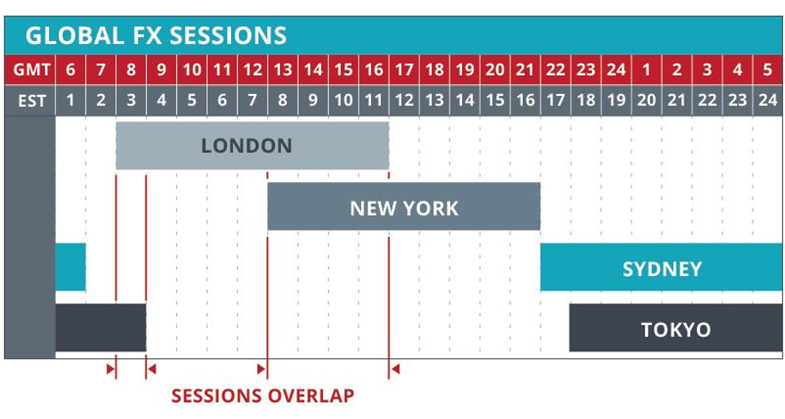What you need to know about forex trading

What do you expect from
forex trading? A lot of people will think "easy money" or "instant riches", but
that's not the way it goes. Of course there is
money to be made - but success is in no way guaranteed, nor does it happen
overnight. To be a successful long term trader takes skill, patience, education
and application.
Before you make that first forex trade, you need to know the key facts about the forex market to help you navigate it.
In this article, we'll give
you useful and actionable information about:
- FOREX BASICS
- THE COSTS OF FOREX TRADING
- RISK MANAGEMENT WHEN TRADING FOREX
- EDUCATION YOU NEED TO TRADE FOREX
FOREX BASICS
Knowing the basics of the forex market will give you a solid foundation to build your skills and trading strategies - so let's dive in!
What is Forex trading?
The forex market is recognised as the largest and most liquid financial market in the world. The average daily forex transaction is now estimated at around $5.3 trillion, according to the Triennial Central Bank Survey of FX and OTC derivatives markets.
One big difference you will note when trading forex is that you trade them in pairs. Unlike trading shares where you buy or sell the same stock, trading forex means selling one currency and buying another currency in return.
For example, you want to go to the US and you're based in Australia. You need to buy the US dollar (USD) using Australian dollar.
 FX MARKET SIZE
VS OTHER MARKETS; Source: DailyFX
FX MARKET SIZE
VS OTHER MARKETS; Source: DailyFX
When can I trade Forex?
The global FX market is also known as a market that never sleeps. It operates on a 24-hour, 5-day cycle that covers three major FX centres - i.e. Japan/Asia, UK/Europe and the US (North America). Wherever you are in the world, you can trade forex almost any time of the day as long as you have access to an online trading platform and a reliable internet connection.
 FX Trading Time
Zones; Source: Forex Market Hours
FX Trading Time
Zones; Source: Forex Market Hours
THE COSTS OF FOREX TRADING
Trading requires some capital to get started. But simply investing that capital doesn't mean it's guaranteed to make you more money.
One of the benefits of trading forex is that you can start with a relatively small amount of capital. This is important if you're new to trading and want to test strategies or learn more about the markets without a big outlay.
How much do you need to start trading Forex?
Trading forex with any success takes more than money. You need patience, skill, emotional control and an ability to look at your mistakes and improve on them. There are some fundamental things to consider, including leverage, spreads and other trading costs.
What is leveraged trading and why does it matter?
In trading, leverage means you only put a percentage of your trading capital up front to open a trade. In practice, this means you don't need a lot of capital to get started - an amount as low as $10 in your trading account, combined with sufficient leverage, can be enough to get you going. Here's an example.
At AxiTrader you can get access to various levels of leverage. For example, if your leverage is 1:30, that means that for every $1 in your trading account, you can open a position of up to $30.
While that opens the potential to make a lot of money in a short space of time, you must remember that higher leverage also means a higher risk of losing money if the trade goes against you.
As a beginner you won't want
to be trading at such high levels of leverage because the level of risk is too
high compared to your market knowledge and trading ability. You may prefer to minimise your exposure by
trading micro or mini positions:
- Micro - $1,000 (0.01 lot)
- Mini - $10,000 (0.1 lot)
- Full lot - $100,000 (1 lot)
To see how this works, use a Demo trading account and try some test trades.
What are spreads and why are they important?
Spreads refer to the price difference between the currencies you are buying and selling - the ASK and the BID price. The size of the spread is an important consideration because it can spell the difference between making a profit, a smaller profit, or even a loss.
Technically, the spread is the cost you pay the FX broker to make the transaction: the tighter the spread, the less you pay. The wider the spread, the more the price has to move in order to result in a profit or loss on a trade.
RISK MANAGEMENT WHEN TRADING FOREX
Trading any market, including the forex markets, involves risks. Most professional and successful traders in the world believe risk management is one of the most important factors in their trading success.
A good rule of thumb, especially for new traders, is to never risk more than 1% of your trading capital while in learning mode.
Here are the top 5 components of a risk management strategy.
- Know your own risk profile: Are you a big risk-taker? Or do you want to take smaller and calculated risks? Knowing your own risk profile or appetite for risk is vital in managing forex trades.
- Position sizing: How much you allocate per trade can also have a big impact on your risk exposure. The bigger your position size, the bigger the potential win as well as losses. The reverse is also true. The smaller the position size, the more manageable the trade is, though it may mean smaller potential for wins and losses.
- Stop loss: Most of the trading platforms give you the ability to set stop loss levels. Setting stop loss for each of your trades is one of the most effective ways of managing trading risks. Use stop loss to your advantage.
- Leverage: You can select and pre-set the level of leverage you want to use for forex trading. As a new forex trader, you may want to keep the leverage level to a minimum when you're just starting.
- Your own trading psychology: It is also important to know your own trading psychology. This means being honest with yourself when faced with big wins and losses. If you know your own psychology, you will be in a good position to prepare for various situations.
EDUCATION YOU NEED TO TRADE FOREX
Trading forex involves daily learning. As markets move and present trading opportunities, you need to be equipped with the right trading tools, information and strategies.
Take advantage of the myriad trading education materials including video tutorials, webinars, seminars, ebooks and trading guides and manuals that are available online.
Check out the AxiTrader Education Centre to access an extensive range of trading resources including:
AxiTrader offers a Demo account where you can practice trading using virtual funds, with no obligation to trade your own money.
When you're ready to trade, you can open a Live trading account and trade with a trusted, regulated and multi-award winning broker.
This article was submitted by AxiTrader.https://www.forexlive.com/education/!/forex-101-the-ultimate-guide-to-forex-trading-in-2020-20200721
2020-07-21 09:52:21Z
CBMiZGh0dHBzOi8vd3d3LmZvcmV4bGl2ZS5jb20vZWR1Y2F0aW9uLyEvZm9yZXgtMTAxLXRoZS11bHRpbWF0ZS1ndWlkZS10by1mb3JleC10cmFkaW5nLWluLTIwMjAtMjAyMDA3MjHSAQA
Bagikan Berita Ini














0 Response to "Forex 101: The ultimate guide to forex trading in 2020 - ForexLive"
Post a Comment